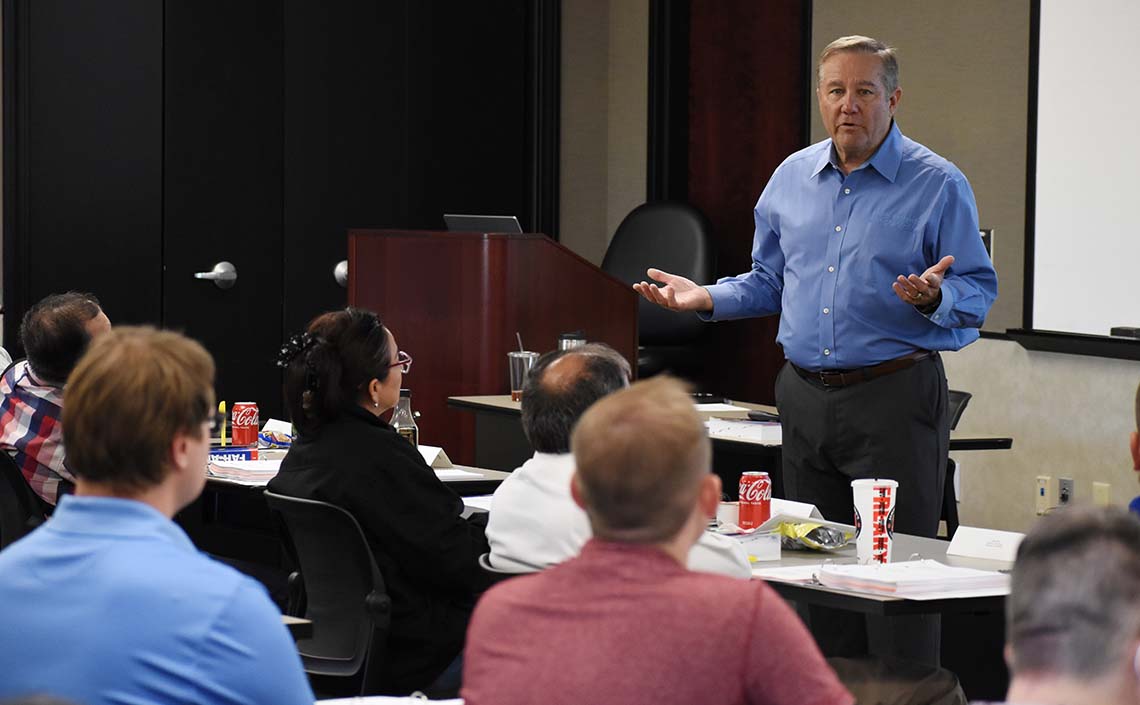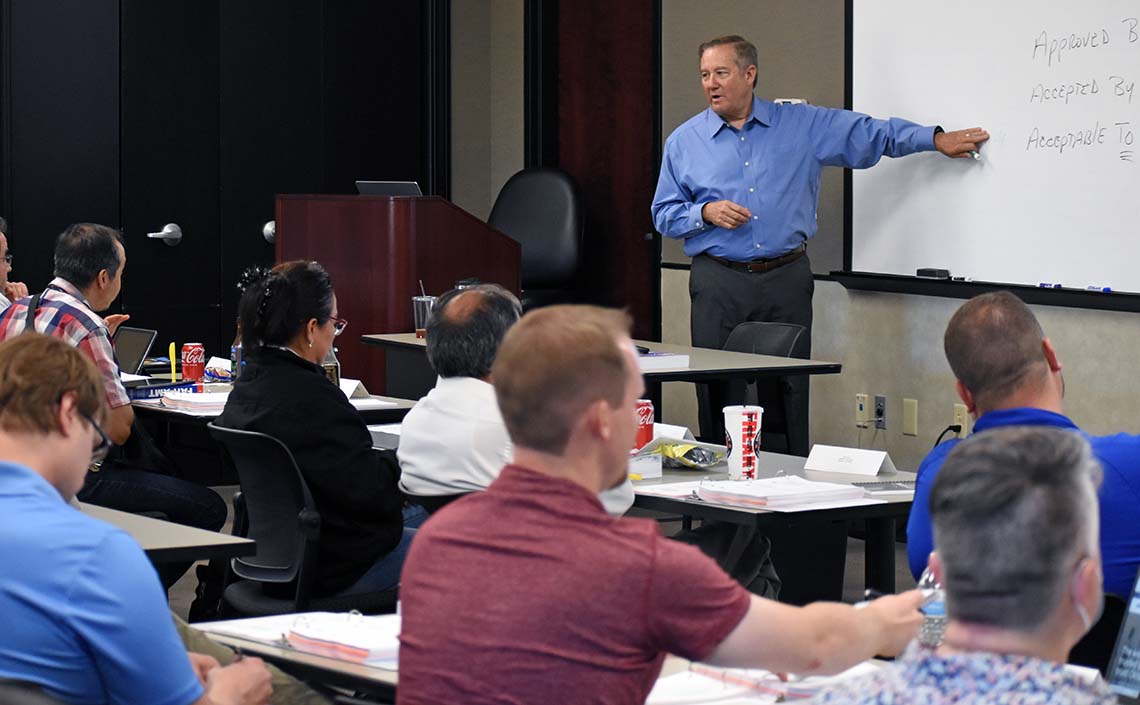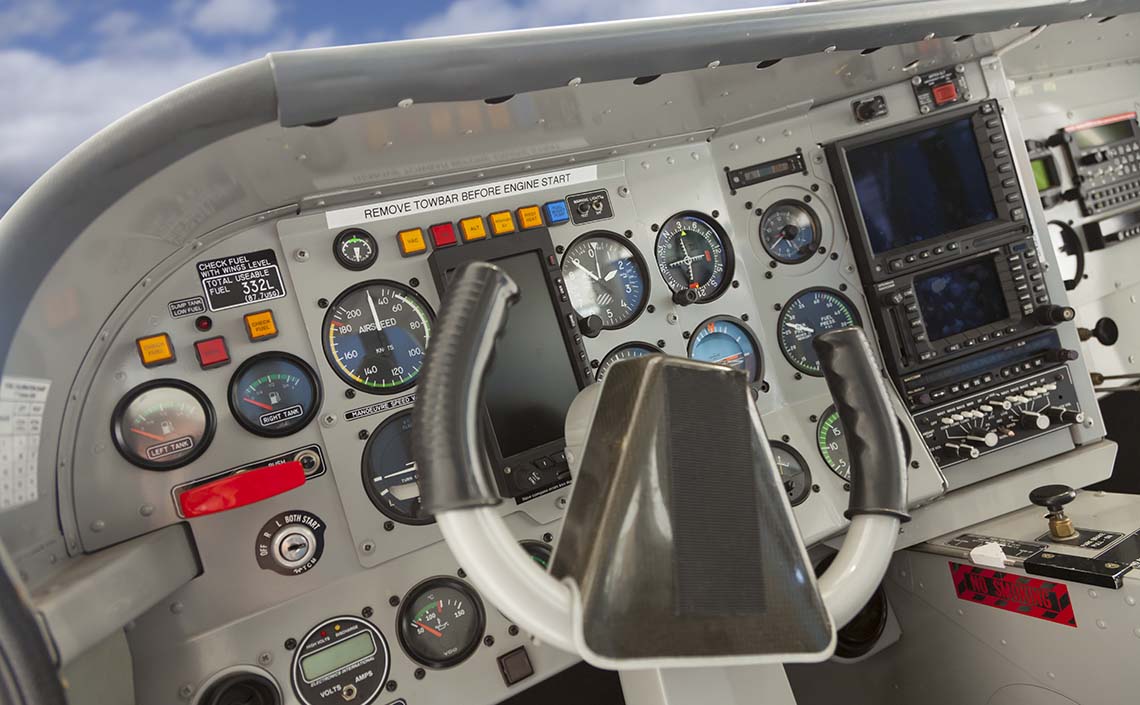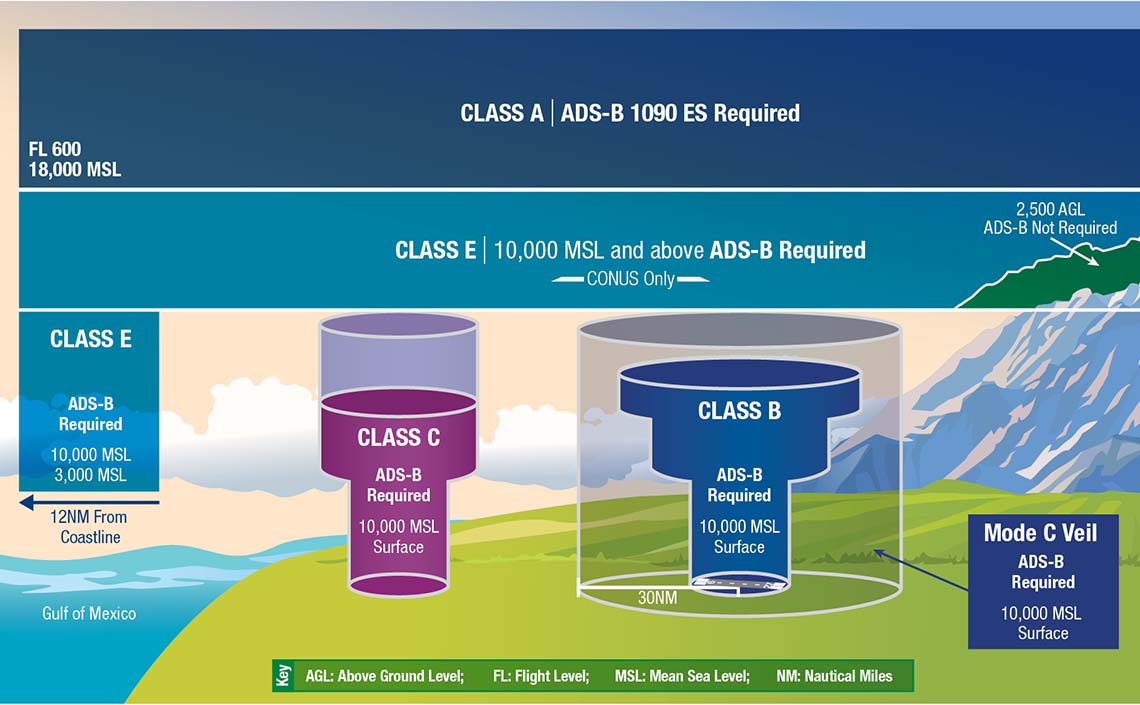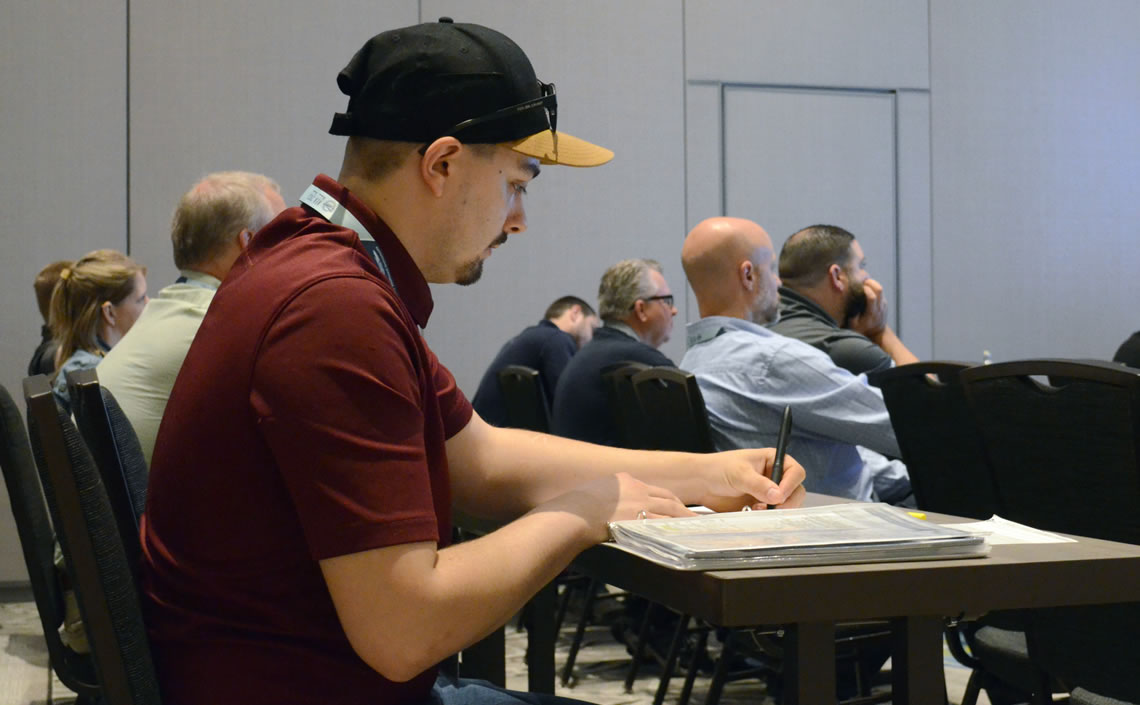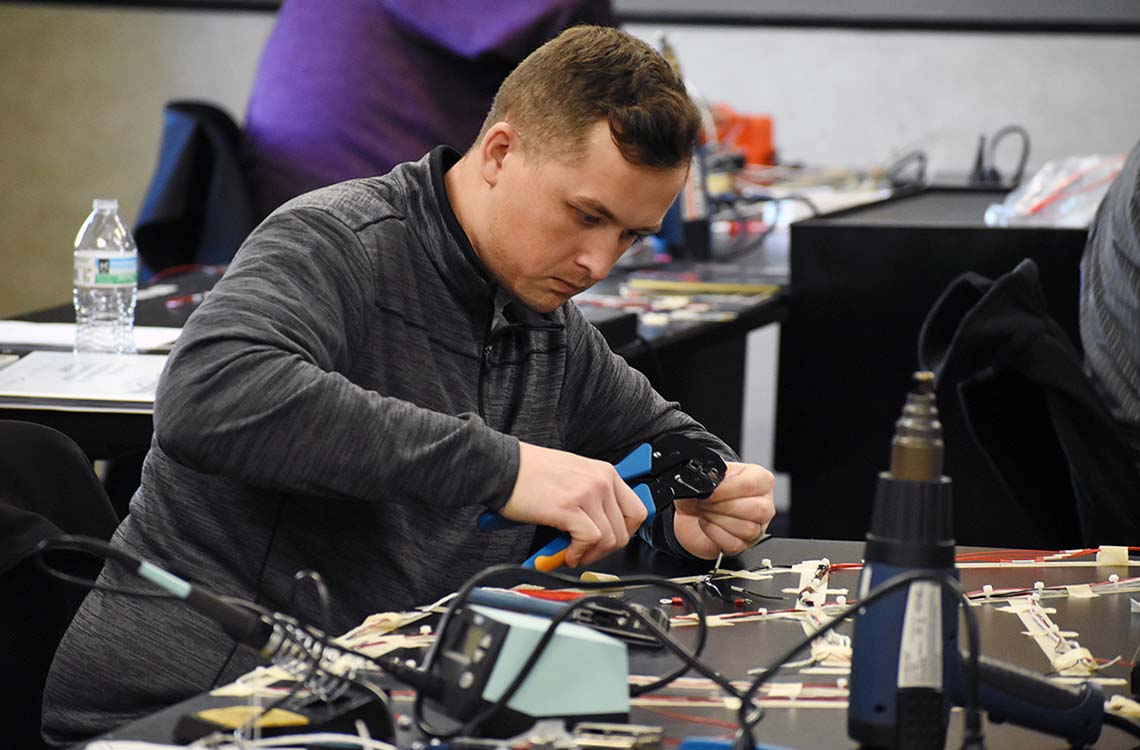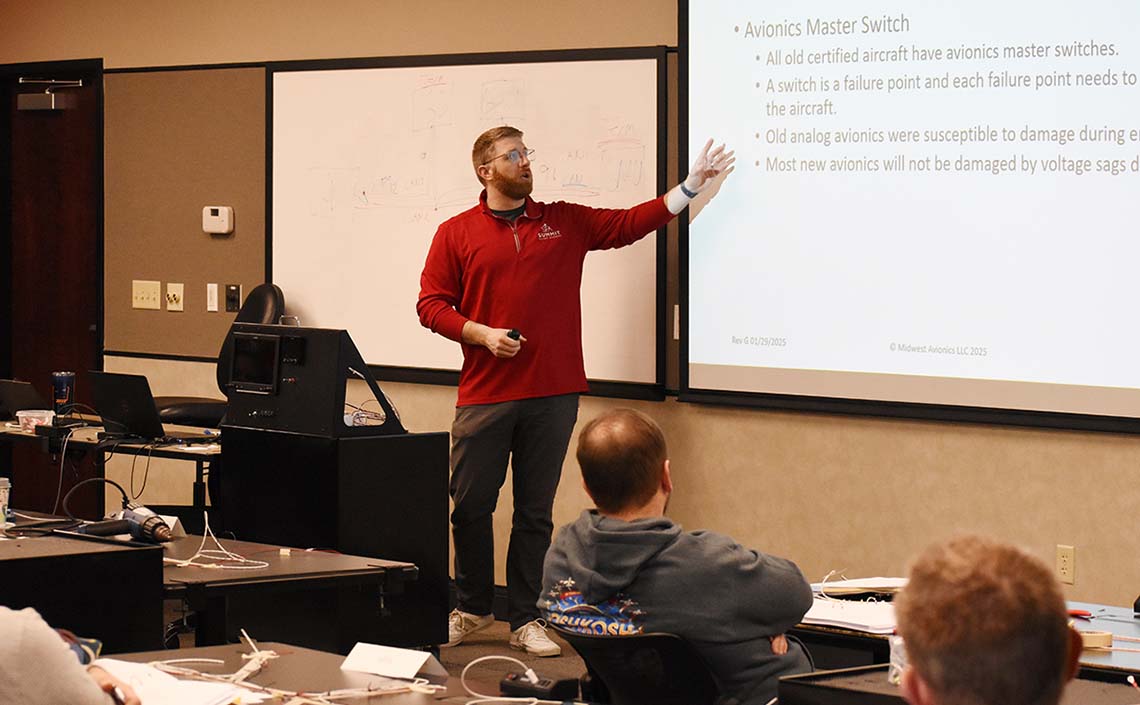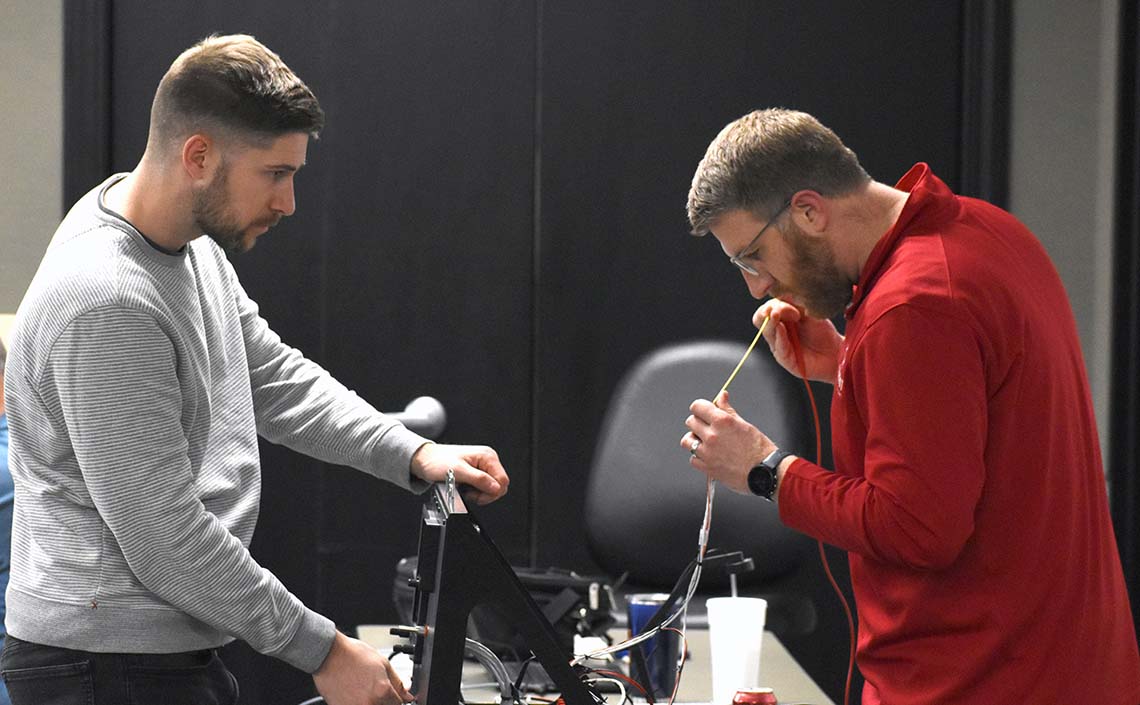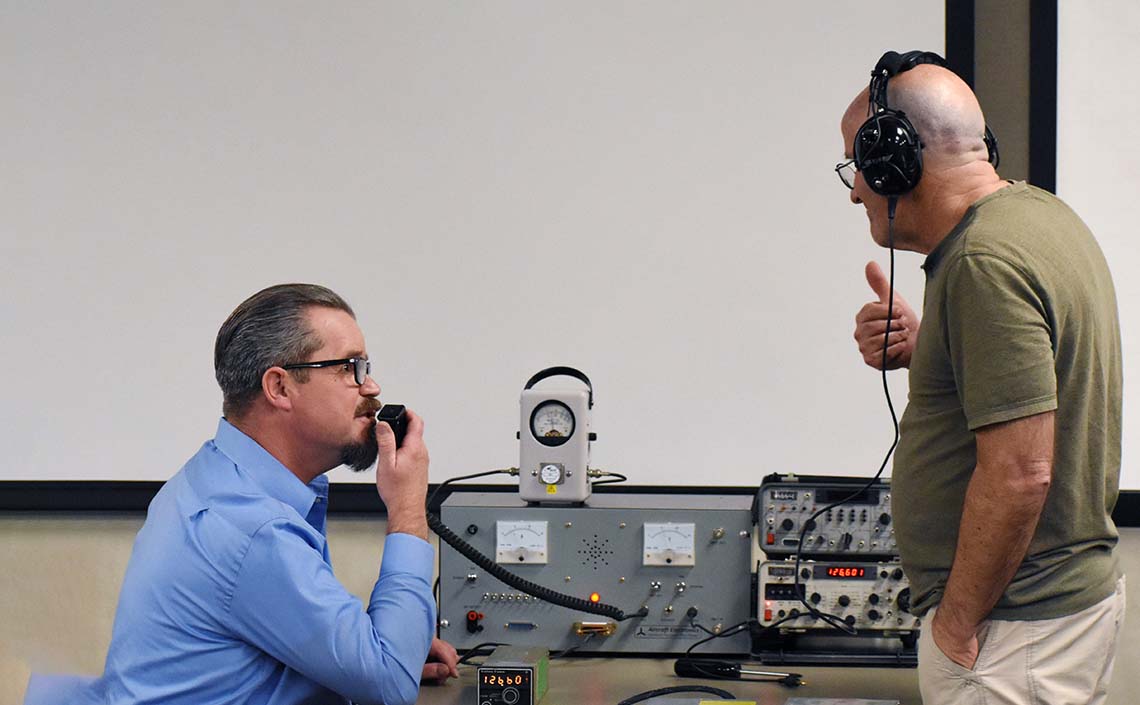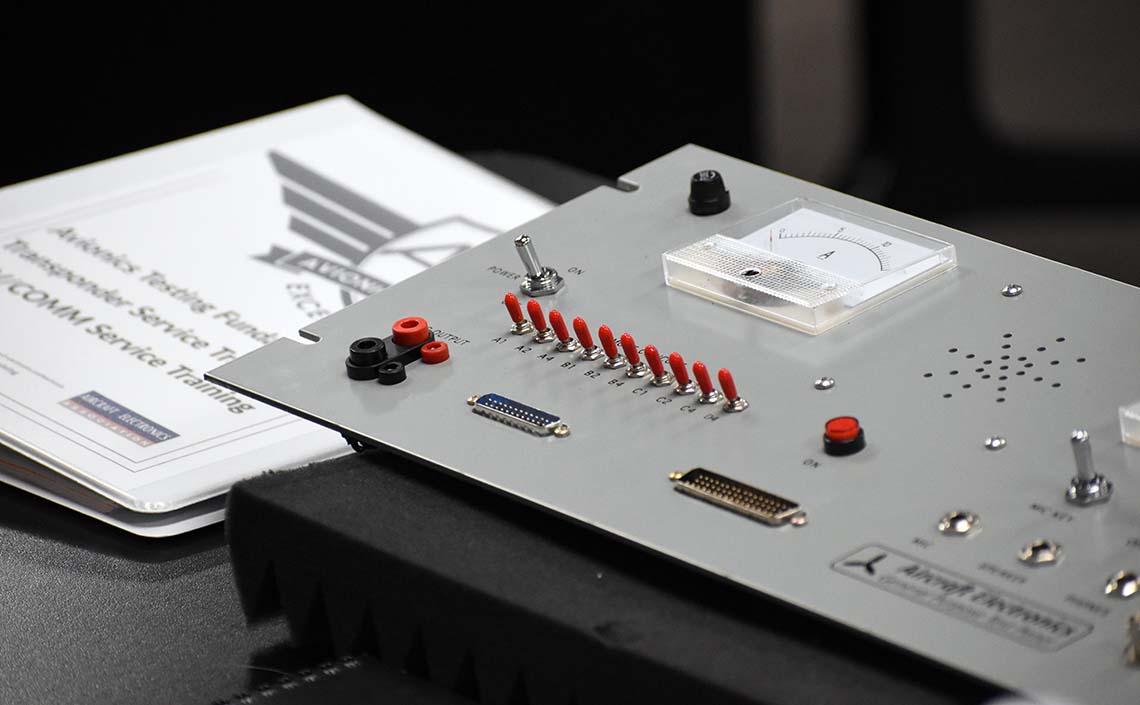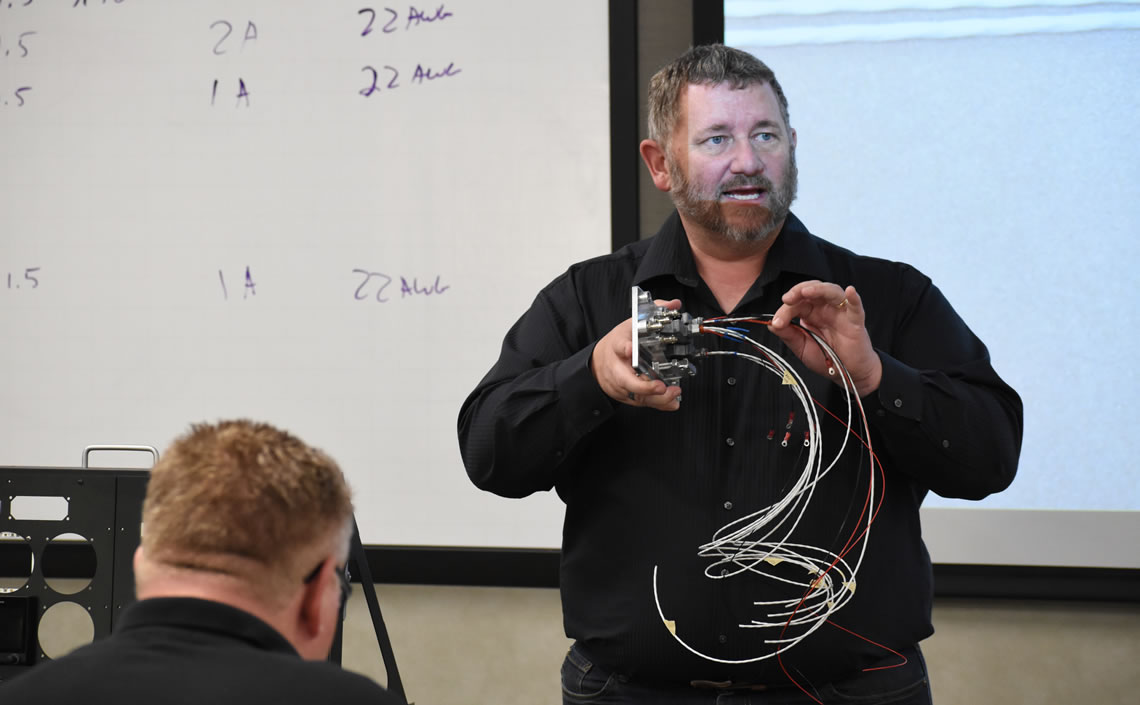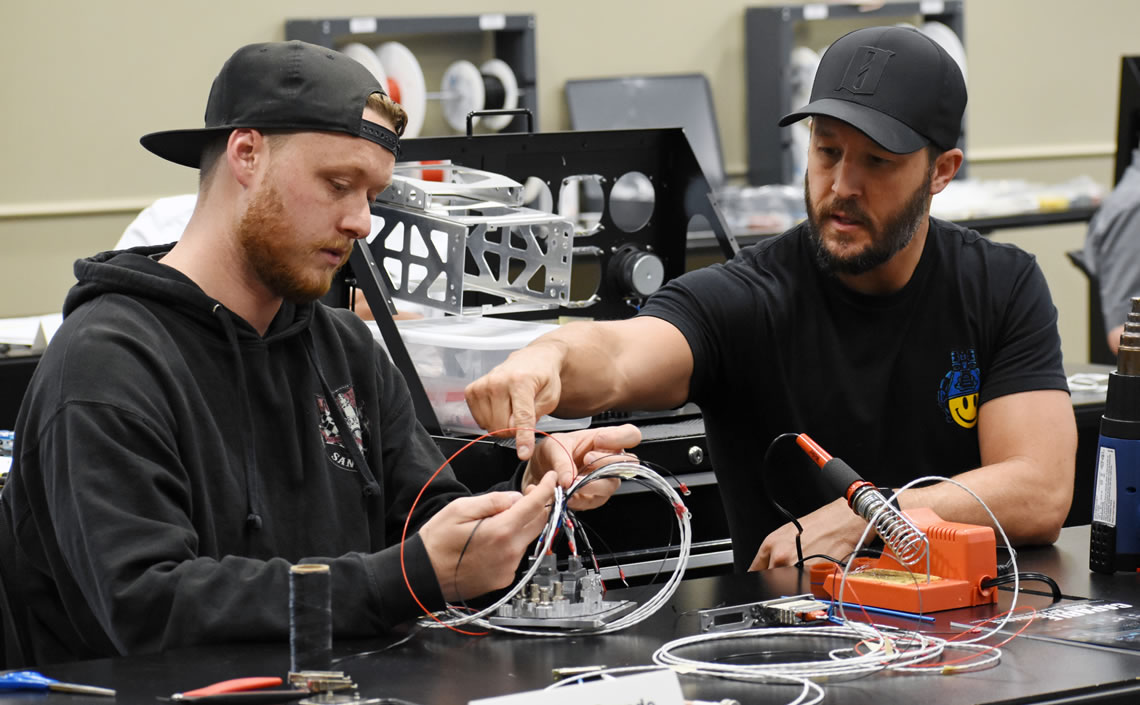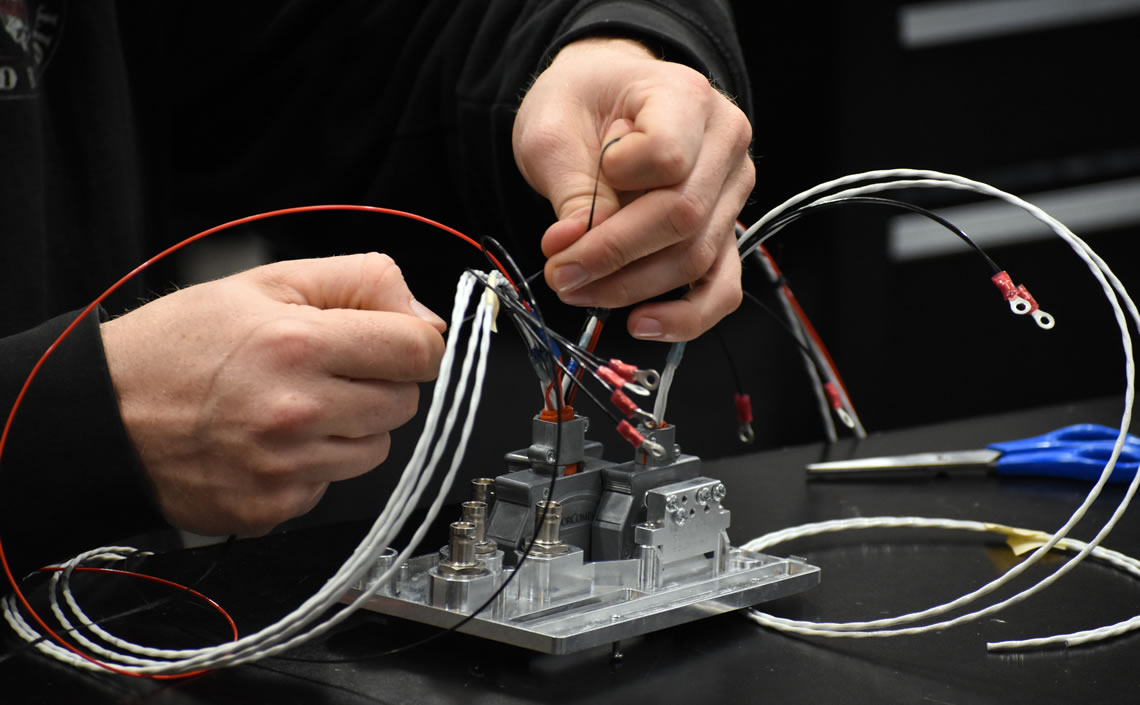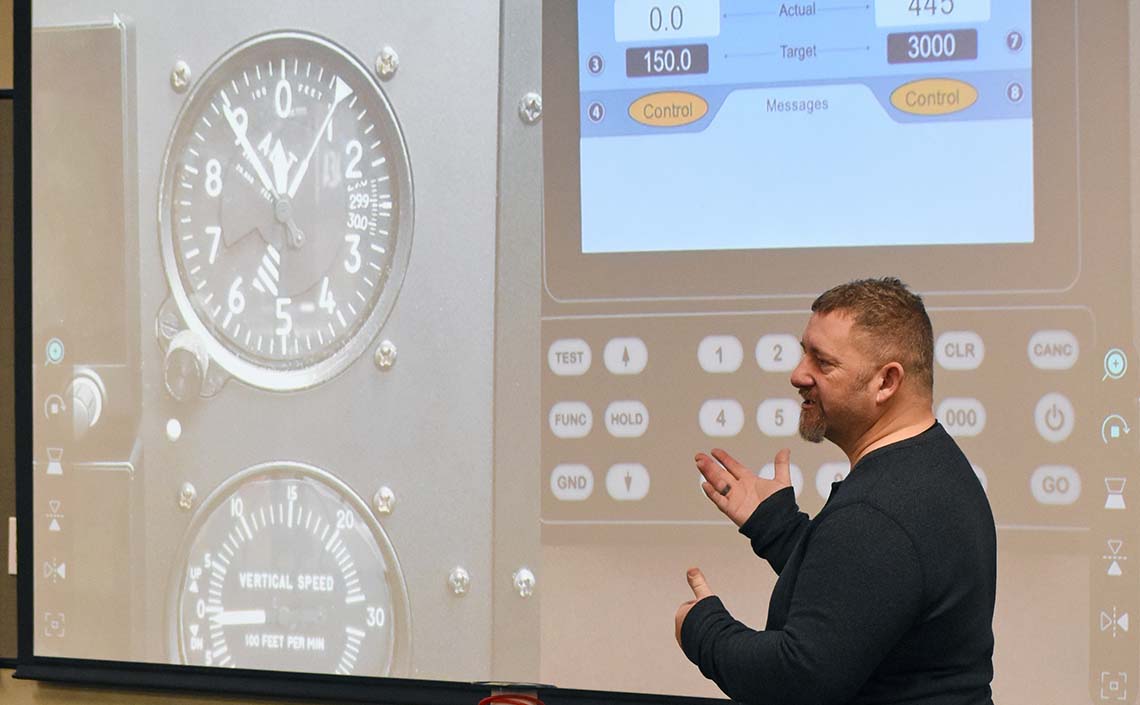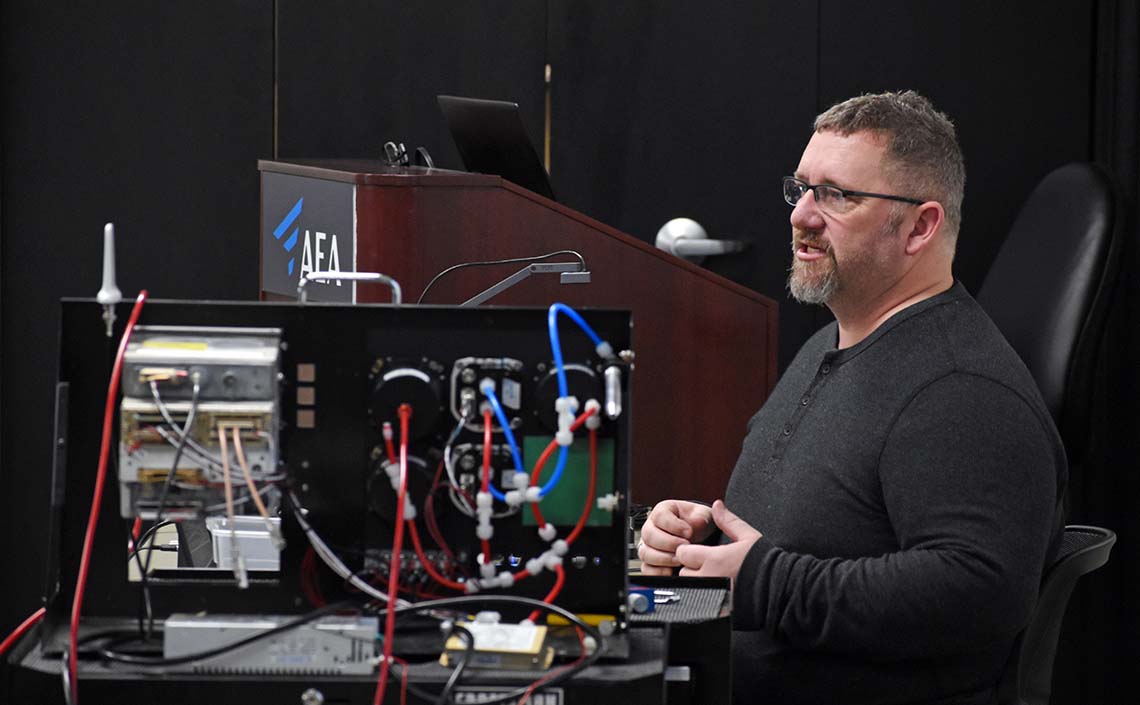Course Date & Time
September 8-12,
2025
Mon-Thur 8:30 a.m. - 4:30 p.m.
Fri 8:30 a.m. - 12:30 p.m.
AEA Headquarters
This weeklong course provides an interactive environment to learn, understand and implement the regulations that govern repair station design and operations.
FAA Accepted 8 Hours - Course # C-IND-IM-180621-K-010-001
Presented by: Ric Peri, AEA vice president of government & industry affairs.
Who Should Attend?
Current quality managers, technicians, mechanics, and repairmen who are involved in the management of a repair station as well as individuals looking to establish a 14 CFR Part 145 repair station.
U.S. Regulations for Repair Stations
This training program will review the regulations applicable to a U.S.-certificated repair station engaged in maintenance, preventive maintenance and alterations of U.S.-registered aircraft, components or accessories. The relationships between compliance, audits, and the design and development of repair station processes all begin with knowledge and understanding of the regulations.
This training program will review 14 CFR Part 145 and how the various other regulatory parts interface with Part 145. This module includes a thorough examination of the U.S. regulations needed to manage a U.S. FAA-certificated repair station.
- Part 145 – Repair stations.
- Part 43 – Maintenance, preventive paintenance, rebuilding and alteration.
- And the applicable maintenance sections of:
- Part 91 – General operating and flight rules.
- Part 121 – Operating requirements: domestic, flag and supplemental operations.
- Part 135 – Operating requirements: commuter and on-demand operations and rules governing persons on board such aircraft.
Preparing for an FAA Audit of your Repair Station
Building upon the base of knowledge of the regulations, the course includes a review of the FAA guidance and policy regarding the procedures to ensure a repair station is operating within the criteria of its manuals.
The instructor will describe the path of the regulatory authority from the repair station and explain what the FAA is looking for in an audit. Using AC 145-5 and FAA Order 8900.1, this training will allow the repair station to perform an internal audit prior to its annual FAA surveillance to ensure it is operating as stated in its various manuals.
Many repair stations feel that the FAA audit is an unknown, "gotcha" procedure and is feared. Following this program, the student will understand the scope of the FAA audit, understand the logic of the audit items, and be better prepared to receive an external audit.
Students will be provided with the reference links to all FAA regulations, guidance and policy.
Writing Repair Station Manuals
With an understanding of the regulations, guidance and policy, the repair station will be able to better define its business and document processes to ensure regulatory compliance while maximizing business efficiency. Why pay thousands to a consultant who simply wants to use a template with no real understanding of your business? Don’t over-commit your repair station to processes and procedures outside the scope of your work. Simplify your manual, speed up your audits, and maintain compliance with this thorough review of your manuals.
Throughout the five days of training, attendees will have hands-on opportunities to draft or revise their own:
- Repair station manual.
- Quality control manual.
- Repair station training program.
Bring your laptop and current manuals, and be prepared to write.
Gerald L.
5
Be prepared to go back home full of ideas and task that you want to do in your program.
Roger B.
5
You MUST attend. You will get more than you think.
Stephen S.
4.6
You should not be in the aviation industry without taking this class!
Elizabeth N.
5
This class is an excellent way to prepare for writing a repair station and/or quality control manual or to edit an existing one!
James B.
5
Perfect class to learn 145 regs. You may think you know, but you dont Ric will open your eyes to so much and make you understand it.
Ethan N.
5
This class is hands down a no brainer, you have to take it. You will be glad you did!
Kaleb R.
4.8
A requirement for anyone involved with a repair station. A very entertaining, and informative course.
Phil M.
4.8
This is a good class to attend that gives an in-depth review of Regs and provides the reason to the "why" we do what we do.
AJ V.
5
It is a must for anybody new to a 145.
Kyle K.
4.4
Be ready to be blown away by the level of comprehension that Ric has on regulations, The "Godfather" of Part 145.
Justin H.
4.6
If you are even thinking of becoming a chief inspector or starting a repair station this class is a MUST HAVE!
Paul N.
4.8
Save yourself a lot of time and attend this class instead of trying to figure it out on your own.
Alessandro F.
4.8
This was a great starting point for us to get our 145. I'm glad we discovered the AEA
Tony M.
5
Great coverage of subject. You will leave smarter then you came.
David G.
5
Beyond worthwhile. Easy to see ROI
John H.
5
Well worth it
David B.
5
Highly recommend for new and old CRS and to every level of employee, top to bottom. I will be sending people to future classes.
Ross A.
5
The training is a must for anyone new to repair station operations. Ric does an amazing job cheating and engaging with the entire class.
Peter M.
4.8
Well worth the time
Chris N.
4.6
It is worth the time and money
Indira O.
5
Excellent training opportunity, performed under superb facilities and facilitated by an excellent & knowledgeable communicator & speaker. Recommended!!!.
Kelli G.
5
One time attendance is not enough; the amount of information is so plentiful it will take another time or two to have it all in place. Recommend more than accountable manager to attend. Great for inspectors, directors & all levels of management or supervision.
Harley S.
5
I have worked in the aviation industry part 91, 121, 125, 135 &145 for 30 years and still learned new things in this class.
Kraig D.
4.6
Invaluable!
Ricjard B.
5
Sipping from a fire hose.
Joel K.
4.6
Ric presents the material well and answers all questions no matter how relevant
Kyle B.
4.6
Great class to help the startups!
Nathan F.
4.4
Great for anyone wanting to become a repair station. Thanks for the knowledge.
Coery T.
5
Great class, you will learn something that can and will expand your understanding & improve your dealings with the FAA.
Andrew S.
4.4
I thought I had a good understanding of Repair Station Ops., boy was I wrong!
Robert S.
5
Must do. Great coverage of the regulations.
Kerri S.
5
Excellent course for anyone looking for Pat 145 Cert
Wilson D.
5
So valuable information and how I wish that FAA inspectors take this course to make RS business easier.
Stephen S.
5
Everyone in Aviation MTX should take this course.
Lloyd K.
5
Outstanding
Bruce H.
5
This class must be taken if you are an FAA repair Station. I've never known anyone with so much knowledge about a topic.
Wade D.
4.6
Alot of knowledge to cover, so take notes!
Bo F.
4.2
Its a very informative based course. Covers a lot if information. Over all a good experience.
Antonio W.
5
This class was very intense and a lot of information is given. But Ric is able to explain everything and break it down so that you understand the training.
Tim K.
5
Even if you could absorb all the material it is still a huge value in general FAR comprehension.
John B.
4.8
This is an excellent Part 145 class and in my opinion an absolute necessity for anyone interested in applying for a 145 certificate.
Maria P.
5
Very valuable information, gave you the bases to start the certification of a repair station.
Bill J.
5
Excellent value, absolutely beneficial for maintenance professionals regardless of if you are applying or existing for a FAR145.
Christopher T.
5
If you are a member take advantage of the online AEA 145 content prior to arrival.
Ken T.
5
For a week long course on Govt regs this class exceeded my expectations.
Seth S.
5
Highly recommend taking the class
Sam O.
5
Ask questions!
John W.
5
Worth the time and money!
Andy O.
5
This class will comprehensively cover part 145 and equip you need to write or revise the repair station, quality and manuals.
Charles K.
5
If you are or will be in a station mgr or chief insp, take this class!!! More than worth the time & money, you cant afford to not take this class.
Doug G.
5
Great info for the startup and legacy CRS!
James C.
4.8
10/10 Guarantee you will leave knowing a lot more than you did when you came!
Larz G.
5
If you're looking a deep dive into the regulations, hands on learning and unequivocal information, the CRST class with AEA is a right choice.
John R.
5
I highly encourage anyone thinking about starting a part 145 to attend this class!!!
Albert R.
5
Great class! This is the best training I have ever attended. A must for those working at a CRS or those who plan to open a CRS.
Mark W.
5
Take this class if possible before writing / updating manuals. Good for anyone and recommend to to any inspector/mgmt in a repair station r considering starting one.
John H.
5
Highly recommend to anyone looking to become familiar with the rules and regulation of a repair station. Take the class if anything is in question.
Sean L.
4.8
Well worth the time and money!
Chris W.
4.8
Plan on a full friday!
Scott G.
4.8
Well worth the time and money!
Caleb R.
5
By far the best training to understand and comprehend the regulations pertaining to 145 Repair Stations. I am leaving this classroom with a better understanding and knowledge of regulations.
Ray D.
5
A must attend if you are not an expert in maintenance regulations.
Tim F.
5
5 STARS! Wish I had this 20 years ago.
Justin M.
5
Very informative, able to take an educated step in the right direction.
Darrell S.
5
It is worth every dime and the time was well spent!
Taavi I.
5
Highly recommend to get good overview about regulations that are part of CRS every day activities.
Rena S.
5
Absolutely worth the time. An eye opening review of the regulations!
Lisa A.
5
Well worth the investment. I will definitely recommend that Boeing considers AEA for future training.
Brad C.
5
It is a lot of info and worth it!
Robert M.
5
Don't be intimated, do yourself a favor and attend. This course is valuable to any AMI, not just current CRS applicants.
Lindsey R.
5
The knowledge and resources provided in this training was invaluable. I was honestly intimidated by part 145 but now I feel like my understanding gained through this course will help me in my tasks and org as a whole. Thank you!
Jose M.
5
Do not miss this training before you attempt to apply to be a CRS!
Joe F.
5
Great course, very well done!
Jay M.
5
Highly recommend, every RS should attend!
Greg G.
5
A great course on better understanding the legal REQ of the FAR to better help you better interact with the FAA inspectors.
Michael I.
5
Never seen such a industry oriented regulation training. This training is amazing!
Juan X.
5
AMAZING! This class has been amazing!
Enrique G.
5
The class and the instructor Ric are amazing.
Susan H.
5
Great class whether you're brand new & trying to setup & write your first manuals or are experienced & need to get another view.
Joe E.
5
A must for anyone working in a Repair Station.
Leopaldo B.
5
I am leaving today with a clear understanding of regulations.
Cesa G.
5
Just what you need for certifying your business. Good instructors and facilities.
Frank C.
5
Very informative & showing you how to see / interpret regulation language & feedback from the FAA.
Mike M.
5
Very thorough training on the regulations that our repair stations are governed by. Ric does a fantastic job keeping the class engaging.
Jonathan K.
5
This training helps you understand why the regulations are what they are how 145 fits in with the rest of the regulations.
Paula R.
5
Bring your questions!
Doug W.
4.8
A must for any RS, existing or future!
Mike M.
5
Provides an excellent understanding of the regulations for new or existing part 145 Repair Stations.
Sarah M.
5
5 STARS, Two thumbs up! Ric is a natural educator who can convey the material clearly. His passion for the industry shines through the material and lecture.
Robert Y.
5
Informative class, touches on all aspects of CRS!
Jarin S.
5
Make sure to sign up early! You might miss out!
Steve R.
5
A MUST for those pursing a repair station.
Reychell R.
5
Be prepared to get fed alot of info, but know you will come out with a great understanding of the subject. Worth the investment!
Gary M.
5
This class helped assure the things I knew with clear regulatory sections and definitions.
Mitch M.
5
This course was beyond my expectations and really helped strengthened my foundation of the regulations and will help me in my job with our repair station.
Matt C.
4.4
Its fast paced with alot of information to soak up. It can be a bit difficult to recall info from earlier in the week because of that. pay attention but take good notes of what is most important for your needs.
James D.
4.6
Very well worth the time and money for new or currently running repair stations.
Edward T.
4.4
Well worth the time and effort. Price is reasonable.
Peter H.
5
A must have resource for any current or potential 145, regardless of size.
Ashley V.
4.6
The class helps t give you a map to follow when building and maintaining your repair manuals
Jeremiah R.
4.8
Very informative, a lot of training on regulations.
Joseph S.
4.8
A humbling experience into regulations. An eye opener for both 65 and 145 knowledge.
Ed B.
4.2
Very, very informative!
Ruben M.
5
Absolutely a must for anyone in a Repair Station.
Alex L.
5
Highly recommend!
Derrick W.
5
Very informative course & valuable info for all personnel involved with regulatory responsibilities.
Andy R.
5
To pay attention, it's alot of Info.
Harry D.
4.6
Excellent regulatory review of FARS. Added emphasis on quality assistance & professionalism in aviation maint.
Chris F.
5
Definitely worth is. Regardless of ownership of a 145 CRS.
Alvin J.
4.8
Attending this class will give anyone a better understanding of the regulation and how to satisfy them.
Angelo C.
5
Great instruction, beautiful facility, friendly staff, very accommodating! I am coming back for other classes.
Jason M.
5
It is an eye opening necessity to being a part of 145 Repair Station
David B.
5
An excellent training source for setting up a repair station
Michael H.
5
extremely good information and take it before writing your manual.
David D.
5
Clarifies the far's and make less confusing and he answers any questions you might have.
Brent O.
5
Great overview -Enough detail to navigate the rules
Calum B.
5
Ric was fantastic! The whole course was an invaluable insight to the whole repair station process! I now feel so much more comfortable with the regs. Well worth the time & money. It will save us alot in the big run!
Donovan R.
5
class is well worth it. Definitely intended for those who already have some aviation background.
Chris L.
5
Very good for a beginner as well as a refresher to an existing 145
David B.
5
Best thing I could have done!
Todd M.
4.8
Attend this course!!
Jason B.
5
Priceless! Take it before starting a 145!
John W.
4.8
A must for anyone considering/w/ a 145. Valuable information to help revise S & P to ensure success and profitability.
Bill W.
4.8
Do it!
Chuck G.
4.8
This course wll challenge your own knowledge, even if you are very experienced and help you grow as a technician and inspector.
David S.
4.8
If you need to understand the rules for a Repair Station, attend this class. Well worth the investment!
Drew B.
5
An eye opener of how lack of knowledge on the repair stations part of a regulation can cause unneeded changes.
Sebastian T.
5
Would recommend to anyone looking to write or revise their RSM!
William T.
5
Whether starting s repair station or managing an existing one, this class will help improve /perfect all your repair station documentation.
Luis O.
5
Ric Peri bring his countess years of experience dealing with the FAA into this course and breaks the certification of CRS process down& into formula that goes a long way towards success.
Jonathan E.
5
This course is a must for any managerial or supervisory employees, you will leave with a better understanding of the regs
Camron S.
5
Very informative, easy to understand & thorough explanation of "regs" pertaining to repair stations!
Raymond S.
4.6
his class can help your repair station save money, expand knowledge, and feel comfortable speaking the FAA
Sergio R.
4.8
I think anybody looking to move up from a tech position should have to attend this course.
Chandra R.
5
Great class, whether you're new to aviation or an "old timer" you will greatly benefit from this class.
Jim F.
4.6
Well worth the time to further your knowledge of FAR regulations.
Levi S.
4.8
The CRS course is extremely valuable to both existing and start up repair stations. Ric gives many insights to help you form & run an effective repair station.
Walter D.
4.8
To read 145 and study it before coming.
Billy H. C.
5
Keep an open mind and come to class ready to absorb a lot of information
Raymond C.
4.6
Go attend!
Richard A.
5
The material in the class is great! It not only covers the regulations, but helps you understand how they apply.
Yamil P.
5
Definitely worth the time and money. There is so much valuable information to be obtained even for an already established CRS.
Dan B.
5
This class brings the regulatory requirements of a repair station into a clear concise picture.
Matthew V.
4.8
The class is very beneficial for gaining perspective and knowledge before modifying RSM/QCMs
Blane P.
4.8
I have 25+ years working w/ 14 CFR and thought I didn't have much to gain by attending, but I was very wrong...I learned a ton!
Kelly T.
4.6
Very informative relevant information. Worth going if you are needing to apply for a repair station.
Michael B.
4.8
Cannot comment at this time
D.J. S.
5
Good material for start up or established CRS
Eric M.
4.6
This class is an excellent tool to assist with writing a repair station manual.
Anthony F.
4.6
Excellent review and training on the regs and how to use them to write the manual. Actual focus on how to write the manual could use more focus.
Richard L.
4.4
It's hard to come in to this class with "zero" manual development and make progress on your own manual it seems more geared to people with manuals.
Charles C.
5
Excellent instruction on FAR 145 and how it relates to the other FARS and how the FAA looks to apply those to my manual
Kristian B.
4.6
If you are involved with any role besides being a tech, come to this class, the amount of information you learn is very helpful for anyone in a part 145 repair station.
Heather H.
3.4
Good for companies at all levels of the spectrum; new employees or as refresher; start ups or large corporations will benefit.
Caleb C.
4.8
You can't afford not to come and learn if you want your repair station to grow towards perfection.
P. Douglas K.
5
Be prepared to evaluate your manual and improve it.
Jason C.
4.2
Fast-paced, regulatory-based class for those who need to know the who, what, why and how of getting up and running a compliant and effective repair station.
Amy W.
4.8
I would tell anyone that it is well worth the time and money. It helps you understand the inner workings of the different parts of the CFRs and that you can't read just one.
Erik J.
5
Excellent course for anyone needing to better understand FARs.
Shaun A.
4.6
Good investment
Kennny M.
5
This class is a must for any individual or company looking to become a 145 repair station
Todd W.
4.4
Informative, lots of information.
Mark M.
4.8
Definitely worth it. A must for Accountable managers. Recommended for chief inspectors. Quality managers, training managers.
Mike R.
5
Very informative and well worth the time and money.
Christopher C.
4
Absolutely recommend to any persons in management positions of a certified repair station.
Michael F.
4.4
This is an excellent class that thoroughly explains the regs in a clear and logical way.
Richard K.
4.8
All shops (145) should take this to greatly improve many aspects.
Gabriel A.
4.4
Ask questions, write notes.
Allen D.
4.4
It is very demanding but you will understand the regs much clearly by the end. All should take to just learn more about what you could be doing right or wrong.
David A.
4
Worth you time.
Chris D.
4.6
Knowledge is key and this class will not leave you wanting. Would recommend this class to anyone.
Patrick G.
5
Come ready to learn from the industry's best instructor. Be ready to learn!
Danial R.
4.8
It is information you will not get anywhere else and that is highly recommendable.
Cameron K.
4.6
This course delivers you the knowledge to be in control of your business, and is so much more than a step-by-step process.
Brooke H.
5
Long but worthwhile.
Jose Roberto N.
5
It's a good and perfect way to begin with your business.
Ludwig Nicholas L.
5
The course is well organized with material specific to repair station manual production.
Bill L.
4.6
Should be required training for anyone transitioning from the technician to inspector role.
Zane B.
4.4
Ric is incredible informative and knowledgeable in regs and the know how of why they were created and how to comply.
Jaramey H.
5
Very informative class and Ric is very helpful and knowledgeable.
Paul M.
3.8
Definitely attend no matter the phase of your repair station.
Angel G.
5
Definitely worth your time and money. You will come out much more knowledgeable to be able to help your business.
Krit M.
4.4
Great course for learning to write MRO manuals and aviation data/information
Daniel H.
4.4
Well worth attending.
Don K.
4.6
Great info. Be prepared to learn and write a lot.
Cristobal F.
4.8
A must for every technician, chief inspector, accountable manager in an aviation repair station
Kaleb K.
4.4
Ric really knows how to present regs in a good way and not be too boring.
Peter H.
4.6
Do your own research on 145 repair stations prior to attending but definitely take it . It is worth the money.
Ron C.
4.2
The instructor is very knowledgeable and covers a lot of material. The manual development approach was handled very well. The course met my expectations.
Other Upcoming Courses
Aircraft Instrument Systems
VIRTUAL-LIVE COURSE
This course is designed for avionics technicians or apprentices who want to learn more about aircraft instrument systems and better understand their operation, installation considerations, and maintenance to become more effective troubleshooters. From simple mechanical gauges to complex electrical and electronic systems, this course covers nearly every instrument system in an aircraft.
ADS-B Configuration, Testing & Troubleshooting
VIRTUAL-LIVE COURSE
This course is designed for currently employed repair station personnel and installers and maintainers of ADS-B systems. Approximately 4.8% of all general aviation ADS-B installations are non-compliant based on the FAA’s ADS-B Performance Monitoring System. This course focuses on the proper configuration and testing of ADS-B installations to ensure your installation meets the performance requirements and regulations. Also included are troubleshooting tips and tricks that will help you resolve the common problems found in ADS-B installations.
Safety Management System Coordinator Training
VIRTUAL-LIVE COURSE
Risk management is a vital element of any successful business. Whether driven by best practices or responding to a regulatory requirement, the AEA has your solution. Leveraged by the 900-strong repair station membership, the AEA developed a proprietary SMS program designed specifically for maintenance organizations. This program is currently used on every continent. The AEA has been coordinating with the Federal Aviation Administration and Transport Canada Civil Aviation, as well as discussions with the Australian government's Civil Aviation Safety Authority and the European Union Aviation Safety Agency, for future acceptance.
Certified Aircraft Electronics Technician (CAET) Prep Course
VIRTUAL-LIVE COURSE
The Certified Aircraft Electronics Technician (CAET) Prep Course is a virtual-live class designed for aspiring and current aviation technicians seeking to earn their CAET certification. This course focuses on the fundamental knowledge required for entry-level avionics technician roles.
Digital Databus Theory & Analysis
VIRTUAL-LIVE COURSE
As today’s modern airplanes become much more technologically advanced, so must the professionals that maintain them. The advanced avionics and instrumentation systems used in these aircraft rely on various forms of digital databus communication. Understanding digital databus theory is becoming more and more important for avionics technicians, and even A&P mechanics, to effectively test and troubleshoot these highly advanced aircraft systems.
Avionics Installation for Experimental Aircraft
This course is targeted for the home builder or avionics technician who wants to learn about performing an avionics installation in an experimental aircraft. The class focuses on the Garmin G3X Touch system, and a simplified example harness is constructed as part of the hands-on portion of the class. While the G3X Touch system is the primary focus, the wiring principles and general guidance can be applied to any experimental avionics system. From the do-it-yourselfer to the avionics shop looking to carve out a niche, this class has something for everyone.
Avionics Service and Testing Fundamentals
Build and Keep Your Test Panel & Harness!
This intensive three-day course is designed for experienced avionics technicians seeking comprehensive training in avionics testing, troubleshooting, and service. Led by industry expert Don Dominguez of Radioman Avionics, participants will gain hands-on experience in bench testing LRUs, flight line testing, and aircraft troubleshooting across various avionics systems. From fundamental concepts to advanced techniques, this course covers a wide range of topics including navigation, communication, and transponder equipment service.
AVX-10K Operations Training
This course is designed to provide maintenance personnel with the knowledge and skills required to operate and configure AVX-10K to verify and maintain transponder, UAT, TCAS, DME, ILS, VOR, Comms and ELT. Plus a complete review all features and benefits of the AVX-10K Flight Line Test Set with emphasis on testing transponder (Mode S and ADS-B In/Out), UAT, TCAS and DME.
Pitot-Static, Transponder, RVSM, and ADS-B: Testing & Inspection
Attendees will learn the proper methods for conducting pitot-static and transponder tests and inspections. This two-day course offers a regulatory review and an explanation of the proper administrative procedures for completing these critical certifications. Preparing and performing RVSM inspection tasks. ADS-B session covering installation, wiring and return to service review.
FAA Accepted 8 Hours - Course # C-IND-IM-170106-K-010-005
Basic Wiring & Avionics Installation
The Basic Wiring & Avionics Installation course is designed for certificated repairmen, new avionics technicians, aviation maintenance technicians and recent graduates interested in improving or acquiring the skills necessary to perform avionics installations. This three-day seminar employs in-depth theory and hands-on lab exercises to immerse the attendee in the best practices used to plan, manage, and install a general aviation avionics panel. Installation lab includes: Avidyne IFD540 FMS/GPS Navigator, Garmin G5 Electronic Flight Instrument & GAD 29 ARINC 429 data bus module, PS Engineering PMA8000BT Audio Panel and Trans-Cal SSD120-35C-RS-232 Altitude Encoder
FAA Accepted 8 Hours - Course # C-IND-IM-161028-K-010-002
Basic Pitot-Static & Transponder Theory, Testing & Troubleshooting
The Basic Pitot-Static & Transponder course is designed for entry-level avionics technicians or those looking for basic training on pitot-static & aircraft transponder systems. This two-day course covers the history and theory of operation of pitot-static instruments and transponders, as well as system set-up, hands-on testing, and the troubleshooting skills necessary to perform FAR 91.411 and 91.413 checks.
FAA Accepted 8 Hours - Course # C-IND-IM-240718-K-022-0011

